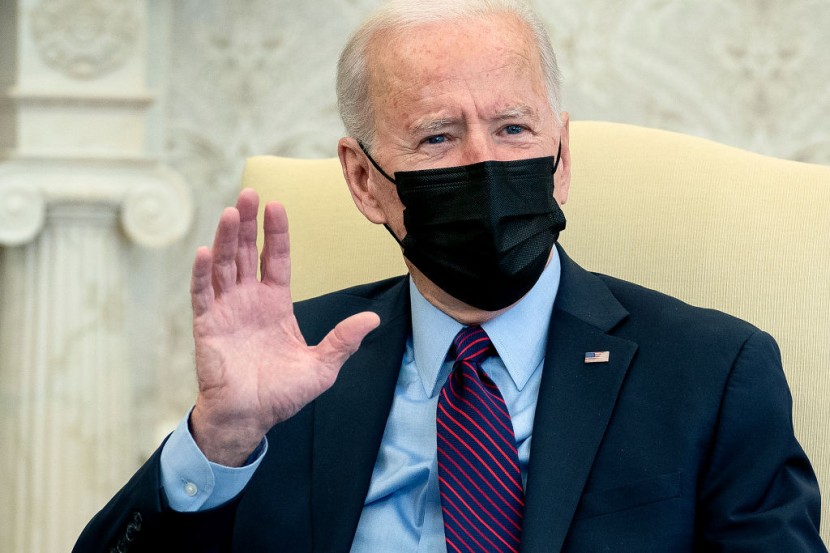President Joe Biden claims that following talks with Congress, his plan to raise the federal minimum wage to $15 per hour is unlikely to make it into the full $1.9 trillion COVID-19 stimulus bill.
Minimum wage increase wouldn't be a part of the relief package

Before the pandemic began, Biden, who pushed for a minimum wage increase, pitched the proposal as an efficient way to help working-class Americans cope with the crisis's economic effects.
On Friday, the President told CBS Evening News host Norah O'Donnell that no one must work 40 hours per week and live below the poverty wage. Earning less than $15 per hour is living below the poverty wage, as per the President. But he admitted that his proposal to increase the federal minimum wage did not seem to be part of the proposed relief law.
According to USA Today, Biden's effort to increase the federal minimum wage was criticized by many Republicans, though some Democrats still had reservations. Last week, Sen. Joe Manchin, D-W.V., told reporters that he would not favor raising the federal minimum wage to $15 an hour. But a moderate Democrat, Manchin, said he favored a smaller increase.
"I'm supportive of an increase that's responsible and reasonable," Manchin said, "and in my state that's $11." Manchin noted that inflation should be adjusted for the increased cost.
Read also: Trump Appointee Sues Joe Biden, Urges Him to Resign Before Term Ends
Iowa Republican Senator Joni Ernst said that she was concerned with increasing the minimum wage after the pandemic. For the hardest-hit small businesses, a $15 nationwide minimum wage will be devastating at a time when they can least afford it, Ernst said.
Meanwhile, Biden said in an interview with the CBS Evening News, "My guess is it will not be in it. But I do think that we should have a minimum wage, stand by itself, $15 an hour."
Senate rules on negotiation, a tactic Democrats aim to use to pass Biden's coronavirus relief bill without Republican support in the closely separated Senate, may run afoul of raising the minimum wage.
Read also: IRS Could Start Sending Out the Third Stimulus Checks as Early as First Week of March
Is the minimum wage increase the answer to the pandemic recession?
Biden said he would discuss the pay increase separately, and the raise will be phased in. The current federal minimum wage, which Biden branded as 'painful,' is $7.25 an hour.
Yet Biden also agreed in the interview with Norah O'Donnell of CBS that the minimum wage does not have to be automatically raised to $15 an hour. However, he would negotiate to increase it to that in stages.
Biden had already said earlier in the interview that he would not compromise on a check for $1,400 for Americans, as part of the relief package, Daily Mail reported. More assistance for the unemployed, the hungry, and others facing eviction is also included in Biden's bill, as well as expanded funds for vaccines and tests, and greater help for small businesses, states, and local governments.
He also focused on Trump, who he said did not need intelligence briefings. To claim that the world's largest economy needs its $1.9 trillion COVID-19 relief package, which cleared a crucial Senate obstacle without the assistance of the Republican opposition, the President seized on insufficient US employment data on Friday.
According to Deseret News via MSN, two state lawmakers call for Utah to go faster to help households survive in the nationwide debate on raising the minimum wage as a means of pandemic relief. "There is honor of service, first and foremost. We want people to be self-sufficient to take care of themselves," said Rep. Clare Collard, D-Magna, who sponsors HB284, to begin raising the Utah minimum wage to $12 per hour by July 1, and will eventually reach $15 by mid-2026.
It is a faster initial leap than what President Joe Biden suggested, which, if approved, will move to $9.50 per hour this year and $15 in 2025. Utah State Rep. Ashlee Matthews, D-West Jordan, says she is now hoping to offer a wage bill that will follow Biden's policy more closely and separate rates in the state between urban and rural areas.
© 2025 HNGN, All rights reserved. Do not reproduce without permission.








